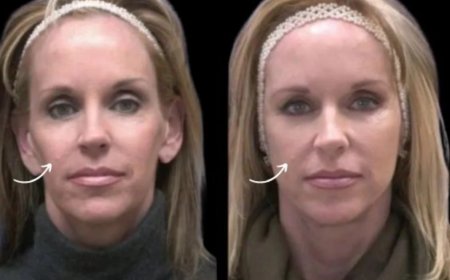Bridging the Gap Between Mental Health and Faith-Based Healing

In todays evolving world of wellness, the conversation around mental health is gaining long-overdue recognition. Simultaneously, faith-based communities continue to be a vital source of hope, comfort, and strength for millions. And yet, for too long, these two pathsclinical mental health and spiritual healinghave walked parallel tracks without fully intersecting.
This article explores how we can bridge that gap. Drawing from both professional expertise and lived experience, well look at how integrating mental health care with faith-based healing approaches leads to truly transformative recoveryespecially for those impacted by trauma, addiction, or deep-rooted emotional pain.
The Historical Divide: Why Mental Health and Faith Separated
A Culture of Silence
Historically, mental health issues were either misunderstood or stigmatized within many religious communities. Feelings of depression, anxiety, or PTSD were often attributed to a lack of faith, moral weakness, or spiritual failing. Congregants were urged to pray it away, further isolating those in need of professional support.
While well-meaning, this approach unintentionally discouraged believers from seeking clinical help, often worsening their conditions. As a result, generations grew up torn between two essential parts of themselves: the mind and the spirit.
Clinical Skepticism Toward Spirituality
On the other side, the mental health field hasnt always embraced spirituality either. For decades, psychology leaned heavily on secular frameworks. Faith and religion were often seen as personal matters, outside the scope of therapeutic intervention.
This disconnect left a vacuum. Individuals had to choose between seeing a mental health counselor who didnt understand their faith, or relying solely on clergy who werent trained in trauma, addiction, or mood disorders.
Rewriting the Narrative: A Holistic Approach to Healing
Trauma Doesnt Discriminate
One universal truth that both clinicians and clergy agree on? Trauma touches everyone. Whether rooted in childhood neglect, systemic injustice, domestic violence, or community violencetrauma weaves itself into the very fabric of a persons life. And for many, the path to healing must include both psychological tools and spiritual strength.
Faith as a Resilience Factor
Recent studies have shown that faith is a powerful protective factor in mental health. Individuals who rely on spiritual practices like prayer, meditation, or communal worship often report greater emotional stability, lower rates of depression, and improved coping mechanisms.
Faith doesnt replace therapyit enhances it. For example, someone working with a trauma-informed mental health speaker who understands both clinical frameworks and spiritual belief systems may be more likely to engage in their healing process authentically.
The Role of Faith Leaders in Mental Health Advocacy
Breaking the Silence
Pastors, ministers, imams, and other faith leaders are often the first point of contact for individuals facing emotional or psychological distress. These leaders are uniquely positioned to destigmatize mental health by:
-
Speaking openly about it from the pulpit
-
Encouraging therapy alongside prayer
-
Partnering with trauma-informed professionals
-
Offering safe spaces for conversation
From Preaching to Partnering
Faith leaders dont need to be therapists. But by forming partnerships with licensed clinicians and mental health speakers who understand the values and language of faith, they can offer more holistic guidance.
Imagine a church workshop led by someone who not only understands PTSD but also references scripture in a way that speaks to the heart. Thats where real connectionand transformationbegins.
The Power of Lived Experience in Faith-Based Mental Health Work
Why Lived Experience Matters
People are more likely to engage with someone who has walked in their shoes. When a mental health speaker has also overcome trauma, addiction, incarceration, or abuse, their words carry deeper authenticity.
Add a layer of faith to that lived experience, and you have a voice that resonates on both emotional and spiritual levels.
Building Trust in Vulnerable Communities
In marginalized communitieswhere systemic barriers to care still existtrust is often the greatest obstacle. A professional who speaks not only with expertise but from personal transformation helps rebuild that trust.
Thats why faith-based, trauma-informed speakers are crucial to this movement. They bring hope that is rooted in reality, not just theory.
Mental Health + Faith: What Integration Actually Looks Like
1. Trauma-Informed, Faith-Led Workshops
Events that blend spiritual messages with evidence-based therapeutic frameworkscovering topics like generational trauma, anxiety, grief, and forgivenesshelp people feel seen and understood.
2. Community-Based Healing Circles
Small group sessions rooted in both scripture and psychology give individuals a space to share, heal, and grow together.
3. Re-entry Support for Justice-Involved Individuals
Formerly incarcerated individuals often face overwhelming emotional challenges post-release. Faith-based reentry programs that address mental health, purpose, and identity offer a more sustainable path forward.
4. Equipping Faith Leaders With Mental Health Tools
Training clergy to recognize signs of trauma, refer to licensed professionals, and create safe dialogue around mental health ensures that the church becomes a healing space, not a hiding place.
Why Now? The Urgent Need for Integration in 2025
The mental health crisis is realand growing. From rising youth depression to post-pandemic trauma, our society is experiencing a collective ache. People are not just seeking therapy; theyre seeking meaning.
Faith offers meaning. Psychology offers tools. Together, they offer hope with direction.
We cant afford to treat them as separate silos anymore. The most effective healing happens at the intersection of science and spirit, data and divine wisdom.
Conclusion: A New Model of Healing Has Arrived
Its time to erase the line that separates mental health from spiritual care. Healing is not either/orits both/and.
Bridging the gap between mental health and faith-based healing doesnt dilute either field. Instead, it honors the complexity of being human: body, mind, and spirit.
Whether you're a church leader, therapist, survivor, or seekerthis integration invites us all into a new kind of wholeness. And at the heart of that movement are voices like those found at www.toniercain.comoffering trauma-informed care, faith-driven insight, and a lived commitment to holistic healing.






















